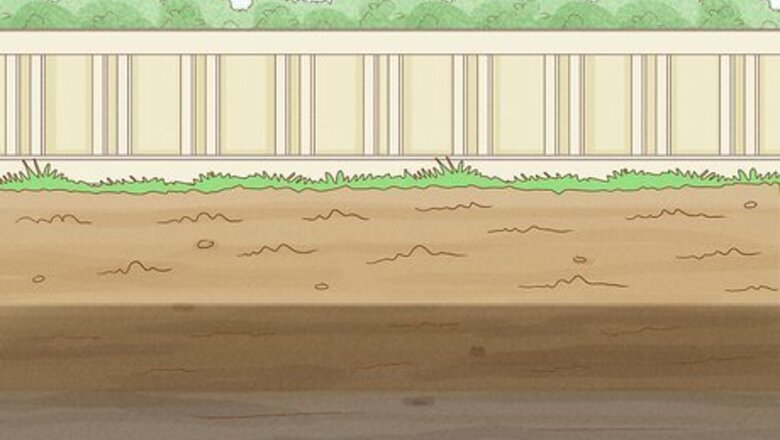
views
X
Expert Source
Jeremy YamaguchiLawn Care Specialist
Expert Interview
You can do this either mechanically or manually.
Mechanical dethatching
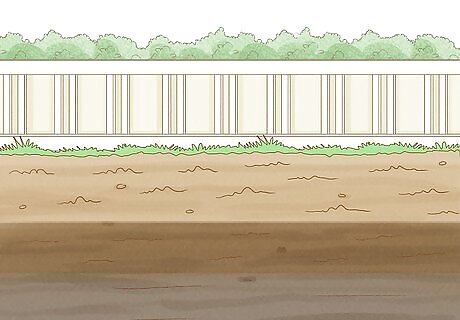
Check for presence of thatch. Look at your lawn and ask yourself these questions: Is the lawn green on top but brown on the bottom? Does it look brown and dead after it had been mowed? Does the lawn feel "spongy" when walked on? If you answered yes, your lawn may have a thatch problem. Use a spade or knife to remove a small section of lawn in a few places around the yard. Measure the thatch layer. If it is greater than 0.5 inches (1 cm), your lawn needs to be dethatched.
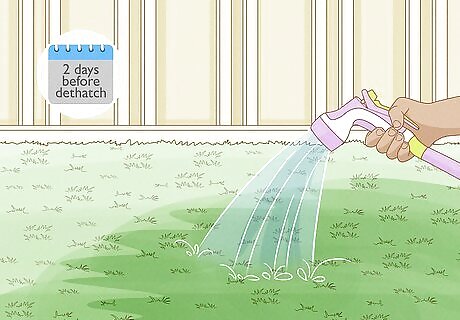
Chose the proper time to remove thatch. This should be in the spring or fall when there is adequate moisture in the soil. Water the lawn lightly 2 days before de-thatching. Trying to de-thatch a lawn that is too wet or too dry will damage the soil.
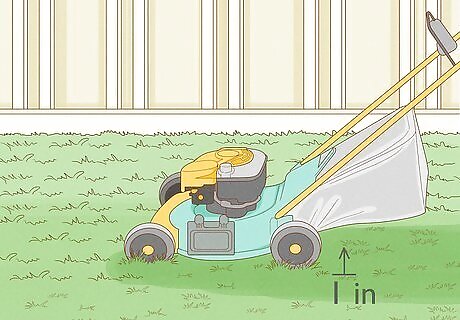
Mow the dethatched area to a grass height of 1 inch (2.5 cm).
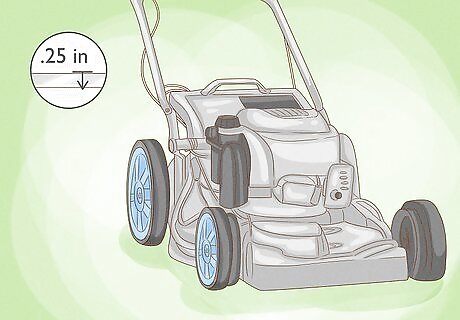
Rent a power dethatching machine such as a vertical mower (power rake) or core aerator from your local hardware rental center. Vertical mowers, sometimes called power rakes, chop down through the thatch layer and lift it to the top of the lawn. These machines create a lot of debris that will you need to remove for compost or disposal. Core aerators pull soil plugs from the lawn, which you can remove or leave on the lawn to decompose naturally. If you rent a core aerifier, have the store operator adjust the teeth spacing of the dethatcher to the appropriate spacing for your type of lawn. Blade height should be about .25 inch (.64 cm) above a hard, flat surface.
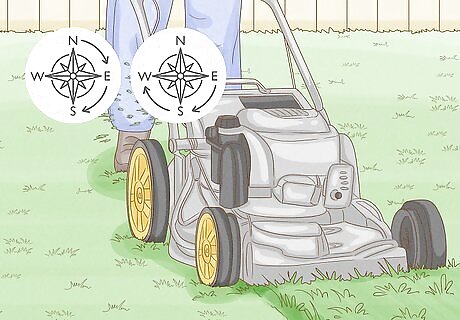
Make 2 perpendicular passes over the entire area with the core aerating machine or vertical mower. For example, power rake the entire lawn running north to south. Do the next pass east to west. This will thoroughly break up the thatch on the lawn.
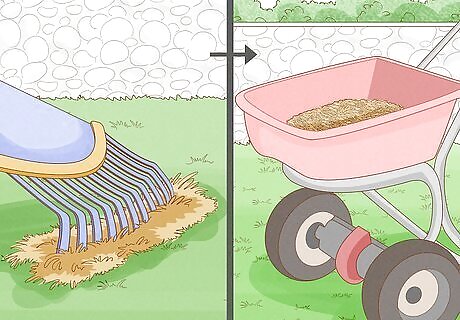
Remove the debris created by a vertical mower or core aerator with a leaf rake, and load it into a wheelbarrow for disposal.
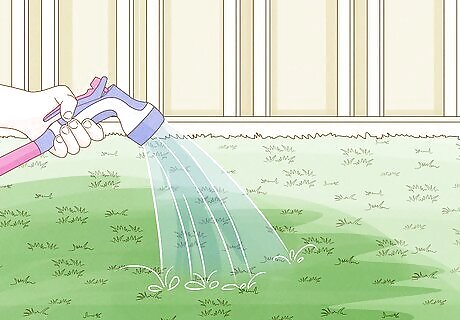
Water the lawn thoroughly to help the grass recover quickly from the de-thatching process.
Manual dethatching
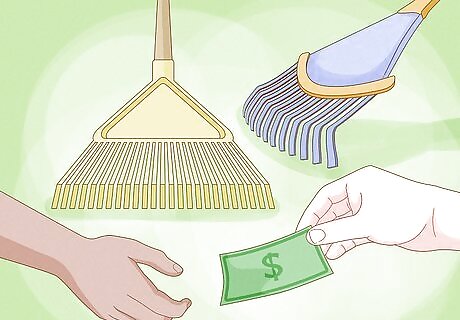
Buy or rent a thatching rake.
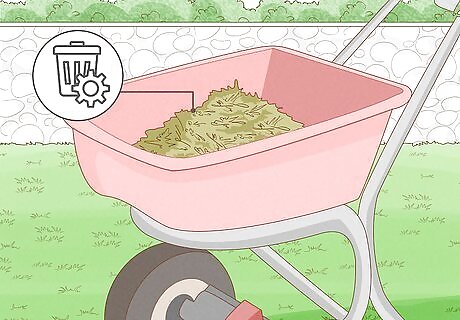
Place the blades of the thatching rake into the lawn, pull it towards you, and break up the thatch. Place the thatch in a wheelbarrow for disposal. Be careful not to pull up large amounts of green grass.



















Comments
0 comment